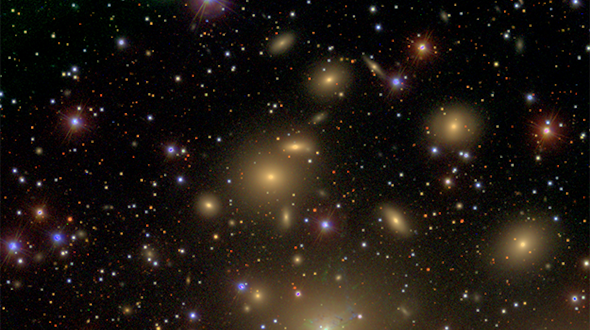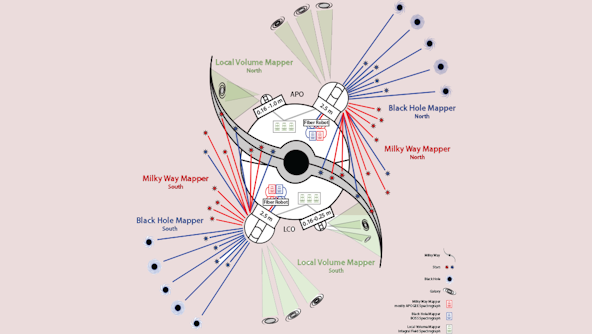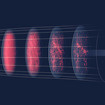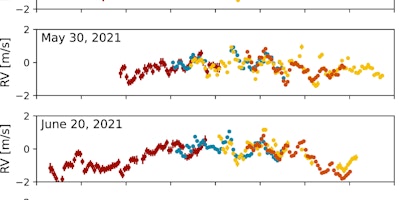
Astronomical Data

The Astronomical Data group develops, maintains and propagates advanced methods and open-source tools for the astrophysics community, especially for building probabilistic models, discovering sources in noisy data and making precise measurements. It builds these methods and tools by carrying out in-house data analysis projects that answer important scientific questions. It also hosts events and workshops that are designed to create new data analysis opportunities for members of the astronomical community.
The Astronomical Data group is currently concentrating on extrasolar planet discovery and characterization, precision measurement of stellar chemical abundances and precise kinematic and dynamical mapping of the Milky Way. Many members of the Data group are cross listed in the Exoplanets and Nearby Universe groups according to their scientific interests. As new data become available and the challenges evolve, so will the scope of the group’s work. By sharing all its data and results publicly, and by developing and maintaining open-source software, the Astronomical Data group directly supports scientific reproducibility and open science. The group structures its activities around people, with mentoring, education and career development all important goals.
Group members are involved in the planning and operations of several large data-intensive projects with lasting value. These include the Terra Hunting Experiment, the ESA Gaia Mission and the Sloan Digital Sky Survey V.
Projects


Publications
Fishing for Planets: A Comparative Analysis of EPRV Survey Performance in the Presence of Correlated Noise
With dedicated exoplanet surveys underway for multiple extreme-precision radial velocity (EPRV) instruments, the near-future prospects of RV exoplanet science are…
The Astronomical JournalQuaia, the Gaia-unWISE Quasar Catalog: An All-sky Spectroscopic Quasar Sample
We present a new, all-sky quasar catalog, Quaia, that samples the largest comoving volume of any existing spectroscopic quasar sample.…
The Astrophysical JournalA Hierarchical Bayesian Framework for Inferring the Stellar Obliquity Distribution
Stellar obliquity, the angle between a planet’s orbital axis and its host star’s spin axis, traces the formation and evolution…
The Astronomical JournalNews & Announcements
Software

emcee
emcee is an extensible, pure-Python implementation of Goodman & Weare's Affine Invariant Markov chain Monte Carlo (MCMC) Ensemble sampler. It's designed for Bayesian parameter estimation.

Gala
Galactic Dynamics is the study of the formation, history, and evolution of galaxies using the orbits of objects — numerically-integrated trajectories of stars, dark matter particles, star clusters, or galaxies themselves.

jaxoplanet
jaxoplanet is a functional-programming-forward implementation of many features from the exoplanet and starry packages built on top of JAX.

nuance
nuance uses linear models and Gaussian processes (using the JAX-based tinygp) to simultaneously search for planetary transits while modeling correlated noises (e.g. stellar variability) in a tractable way.

The Joker
A custom Monte Carlo sampler for the two-body problem.

wobble
wobble is an open-source python package for analyzing time-series spectra.


















